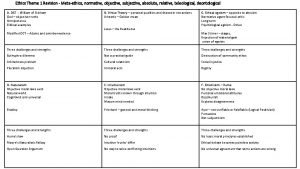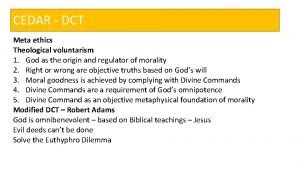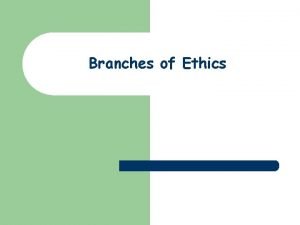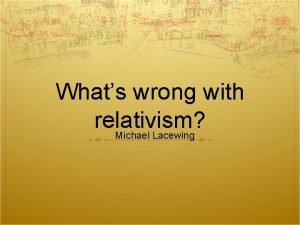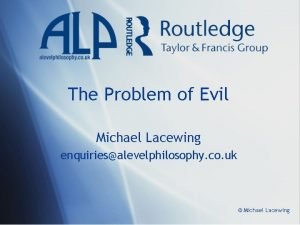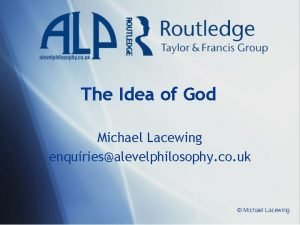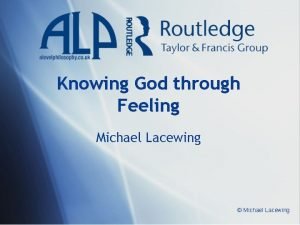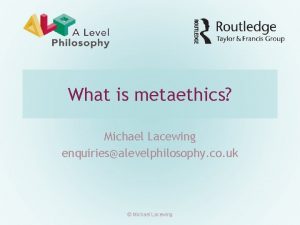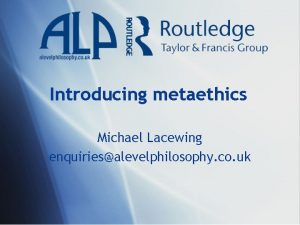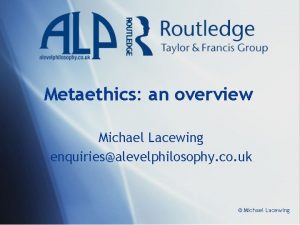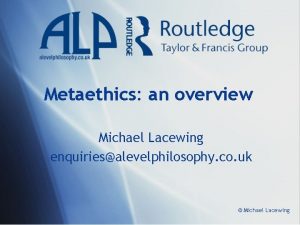Metaethics and applied ethics Michael Lacewing enquiriesalevelphilosophy co






- Slides: 6

Metaethics and applied ethics Michael Lacewing enquiries@alevelphilosophy. co. uk © Michael Lacewing

Metaethics • What is morality, philosophical speaking? – Can ethical claims be objectively true or false? – Are moral properties part of reality? • What difference do metaethical theories make when discussing applied ethical questions, e. g. whether stealing is wrong, whether we should ever lie? © Michael Lacewing

Moral realism • Moral properties are real, so there is a true answer to questions in applied ethics – E. g. it is objectively true or false that stealing (or stealing on a particular occasion) is right or not • Moral realism doesn’t tell us what property wrongness is – E. g. it doesn’t say whether wrongness is about happiness or about universalising maxims or… © Michael Lacewing

Moral realism • Moral non-naturalism: moral properties are not natural properties – It doesn’t say which non-natural properties they are, e. g. whether good is a non-natural property possessed by happiness or the will that only wills universalisable maxims or certain character traits… • Moral naturalism: moral properties are natural properties – This rejects Kantian ethics, since whether a maxim can be universalised cannot be answer empirically, but only by a priori reason – But it doesn’t say which natural properties moral properties are • So: moral realism makes little difference to answering questions in applied ethics © Michael Lacewing

Non-cognitivism • Emotivism, prescriptivism: moral judgments, e. g. ‘stealing is wrong’, are neither true nor false • Does this mean that there are ‘no right answers’ in applied ethics? • Non-cognitivists reject subjectivism and nihilism – If asked ‘Is stealing wrong? ’, to say ‘Some people think it is and some think it isn’t, and that’s all that can be said’ is to fail to answer the question! – To answer ‘Is stealing wrong? ’, you must express your emotion or prescription • According to non-cognitivism, if you hold a viewpoint on a question in ethics, you should express it and defend it © Michael Lacewing

Error theory • Error theory: moral judgments express beliefs about mind-independent moral properties, but there are no such properties, so all moral judgments are false – ‘Stealing is wrong’ is false; ‘Stealing is not wrong’ is false – This undermines applied ethics • Error theory is not subjectivism • To discuss questions in applied ethics meaningfully, we first need to change the meaning of moral language © Michael Lacewing
